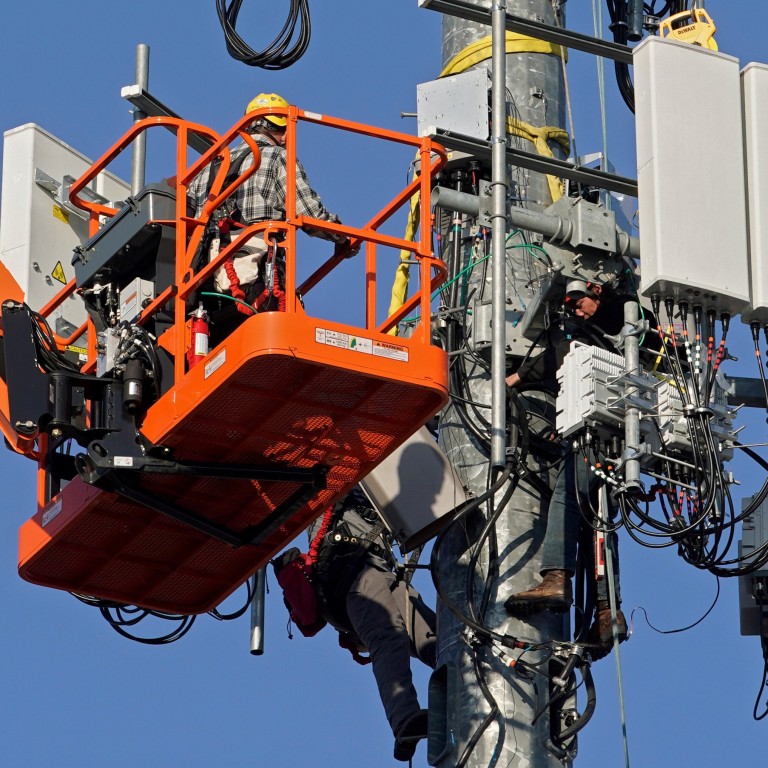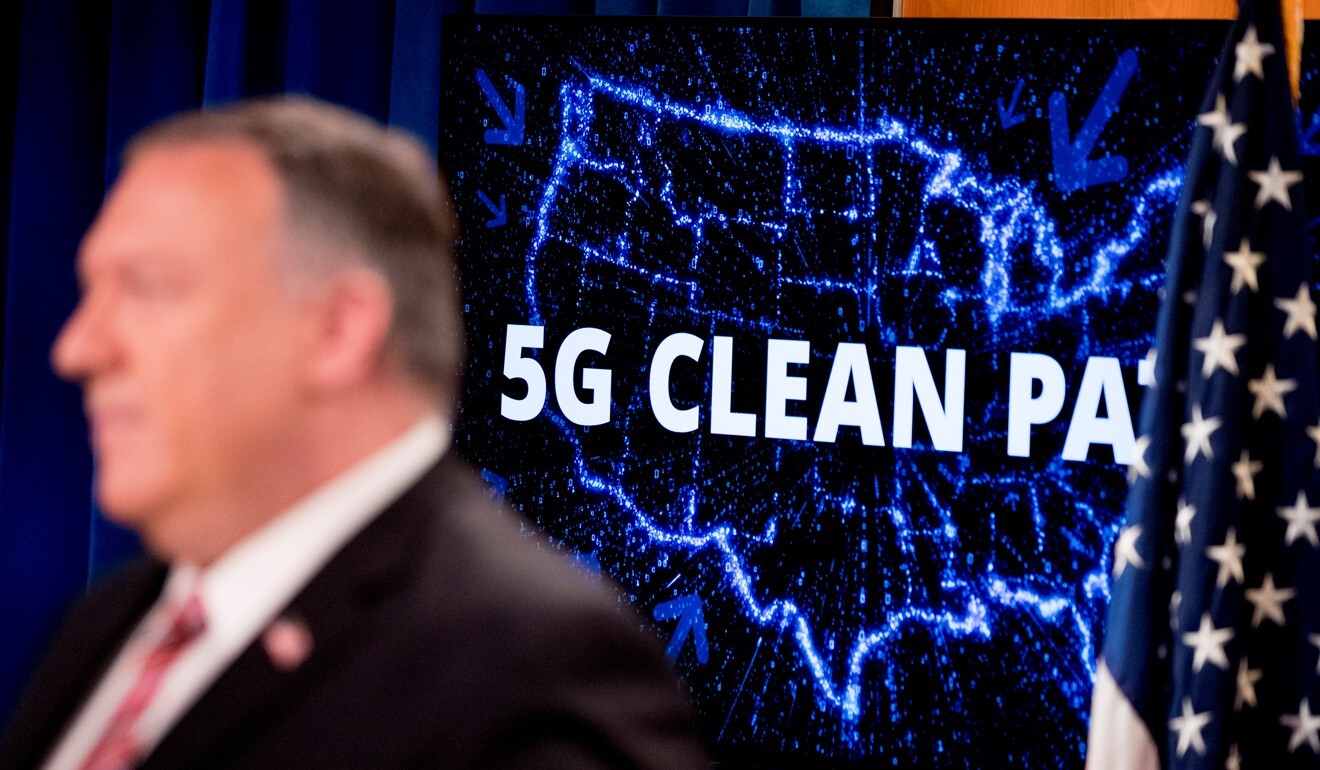
Global firms push US to research 5G tech that would minimise Chinese influence and allow multiple vendors
- Companies including Google, Samsung, Cisco, AT&T and Vodafone urge US lawmakers to fund next-generation tech development
- Firms urge research into radio access networks that would move 5G infrastructure away from expensive proprietary hardware dominated by China
Global technology firms including Google, Samsung, Cisco and Vodafone have joined forces to urge US lawmakers to fund next-generation tech development using open radio access.
Thirty-one companies announced on Tuesday that they had formed the group, called the Open RAN Policy Coalition, to change the way the cell tower radio access network (RAN) works in an effort to support virtual, software-based 5G networks.
RAN is part of a telecommunications system that connects devices to other parts of a network through cableless radio connections. Opening up RAN means the 5G infrastructure can be moved away from the need for expensive proprietary hardware.
An open radio access network “changes the business model for all the telecom suppliers, in that it moves telecom services to software and cloud computing rather than proprietary hardware”, said James Lewis, director of the Technology and Public Policy Programme at the Centre for Strategic and International Studies in Washington.
“It is just one part of the new network technology. The full stack isn't ready yet, but it will reshape how and where service providers buy their equipment,” Lewis said.
The group, which also includes AT&T, IBM, Microsoft, Verizon, Rakuten Mobile and Telefonica, said the change would allow multiple vendors to operate on the system interchangeably and avoid infrastructure in which a single manufacturer must provide everything.
The coalition is urging the federal government to fund open RAN research and development, test open networks and to offer incentives to diversify the tech supply chain, a growing concern of policymakers as the 5G technology is dominated by China.
This is not the first group formed to push for open interface standards. In February 2018, a number of global tech companies formed the O-RAN Alliance based in Germany. One major Chinese telecoms giant, China Mobile, was a founding member. Last year, the company was denied a licence to sell its products and services in the US.
The Trump administration has been increasingly aggressive in excluding Chinese providers from US 5G networks because of national security concerns.
What you need to know about US restrictions on Huawei
Last year, the US placed Huawei Technologies – the Chinese telecoms company at the forefront of next-generation 5G technology – on an “entity list” and barred it from buying critical components from American suppliers.
Last month, several US departments urged the Federal Communications Commission (FCC) to revoke three Chinese telecoms services providers including China Telecom (Americas) from doing business in the US.
Last Thursday, US Secretary of State Mike Pompeo said all mobile data entering US embassies through 5G networks that use Huawei equipment would be blocked under new, tougher “clean path” rules.

“Just as the Trump administration has taken unprecedented action to defend our physical borders, so too are we defending America on cyber frontiers,” Pompeo said.
“The objective is that untrusted IT vendors will have no access to US State Department systems. We’ll follow the letter of the law,” he said. “We will keep doing all we can to keep our critical data in our network safe from the Chinese Communist Party.”
Pompeo slams China over Hong Kong protesters’ arrest and coronavirus toll
Meanwhile, the US has been struggling to come up with its own alternative to replace the products provided by companies such as Huawei.
Members of the coalition announced on Tuesday range from network hardware and component providers, cloud computing giants as well as software and radio companies, indicating a broad range of private-sector interest in the initiative. Geographically, multiple international carriers in Britain, Spain and Japan have also joined.

